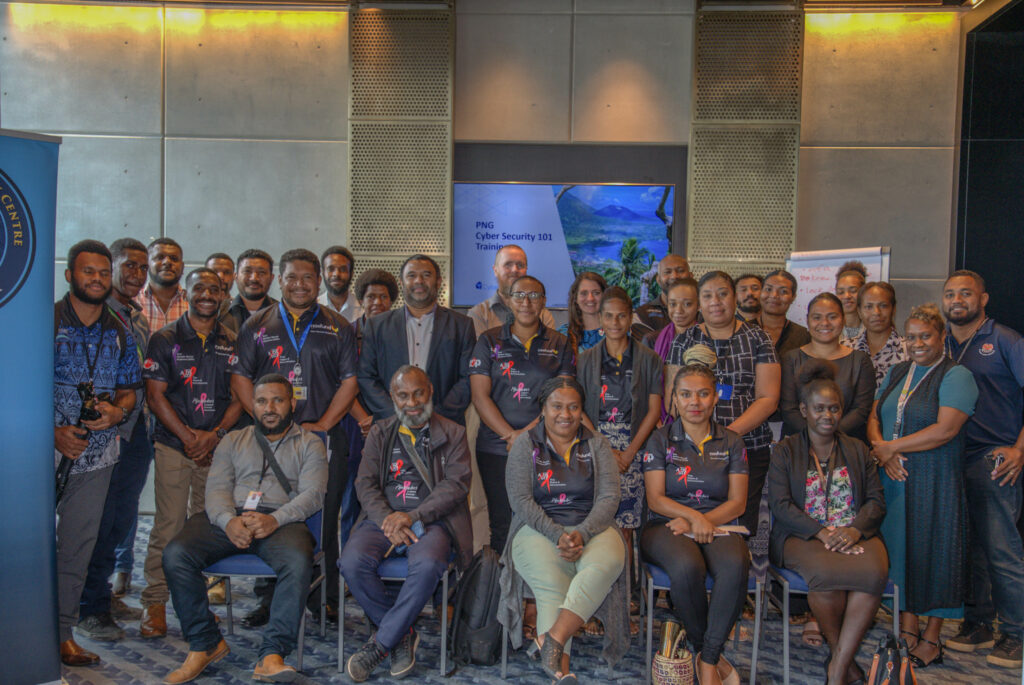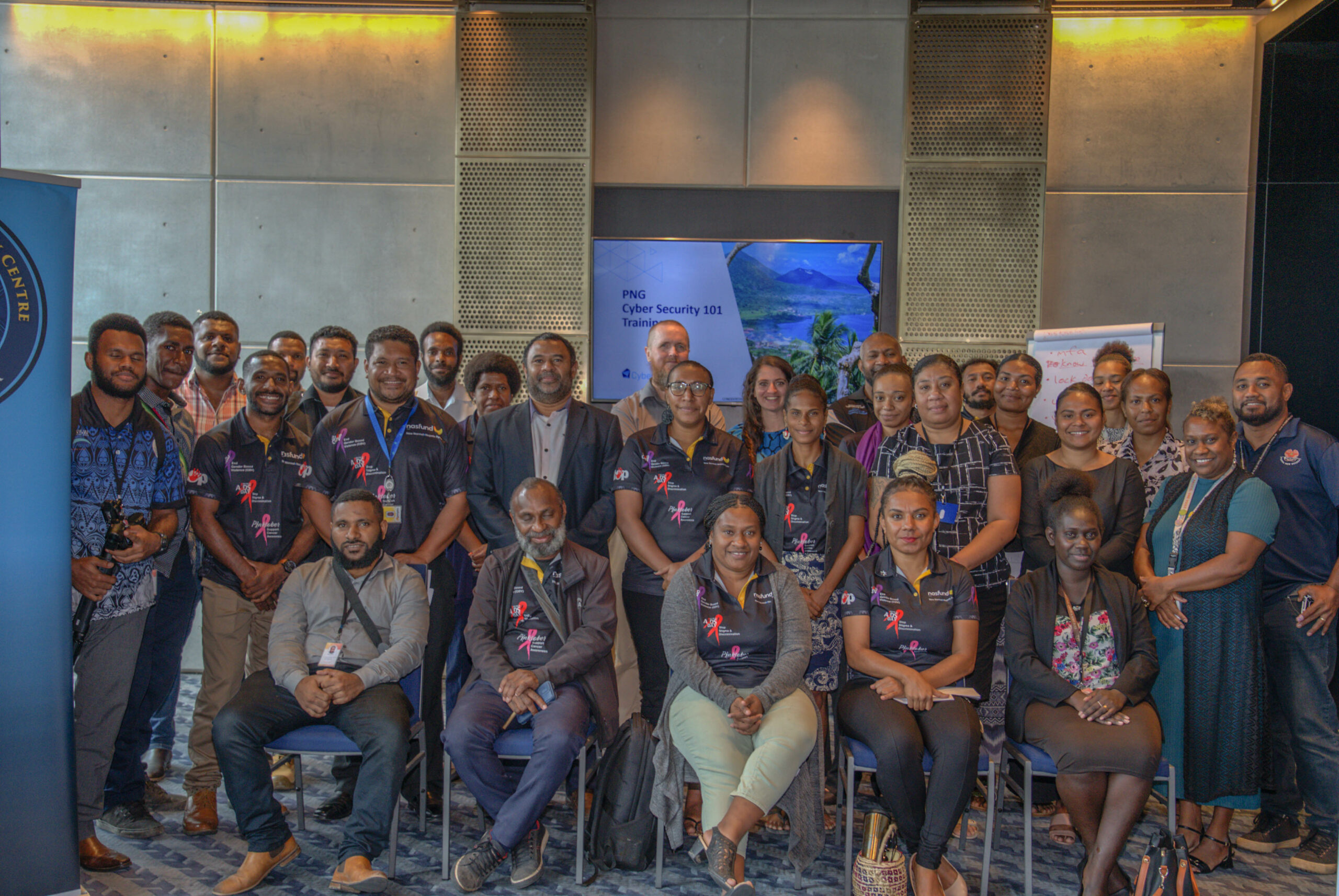Tuesday 2 April, 2024

The Department of Information and Communications Technology (DICT) and National Superannuation Fund Limited (NASFUND) partnered with Cyber CX, one of the world’s leading cybersecurity organization, for a one-day intensive training session held at the Hilton Hotel on March 21st.
Over 60 staff members participated in the split morning and afternoon sessions designed to raise awareness and equip them with the tools to combat cyber threats. The program focused on the critical importance of cybersecurity in today’s rapidly evolving digital landscape, where online safety is paramount from individuals to any organization.
Dr David Halfpenny, Principal Consultant – Cyber Capability, Education and Training and Ms Manal Saroufim from Cyber CX Australia facilitated the training and efficiently covered various cyber threats, discussing the characteristics of cyber criminals and their operational methods, including often overlooked details that can lead to security breaches.
Basic protective measures for both software and hardware security were also addressed. Dr Halfpenny emphasized that in today’s technological landscape, taking necessary cyber precautionary measures is crucial to safeguarding personal information and valuable data, especially for public servants and trusted experts in fields like superannuation.
“The risks posed by malicious software, phishing, and the emerging threat of AI Vishing, where artificial intelligence is used to deceive individuals into giving up sensitive information by using automated voices to try and manipulate the individual on the other end of the line,” Dr Halfpenny outlined
Using a Cyber Security occurrence at a Target shop in Australia, David explained how a cyber bridge can cause millions of dollars lost due to vulnerabilities in one of the less regarded team in the shop, the air conditioning team.
“The air-conditioning repair and maintenance team were not placed on high regard but has access to all facilities at the shop, thus the attackers used that access to enter their system and stole millions of dollars.”
Dr Halfpenny said this was a classic example of connectivity, although important, can be dangerous when basic precautionary measures are ignored or not securely established.
Using that same analogy, he compared PNG to the Airconditioning team, in our strategic position between Asia, Australia and the bulk of the Pacific Island countries, lack of knowledge in keeping our systems safe and secure will allow well experienced hackers can used that to get into our systems and get valuable information from other countries and so on.
“Basic security measures like strong passwords or passphrases can go a long way to keep a system safe from cyber criminals,” Dr Halfpenny advised.
The discussion extended to password security, advocating for the use of passphrases and Virtual Private Networks (VPNs) for enhanced online security, particularly for remote work scenarios. Setting up privacy settings and regularly updating software were also emphasized as crucial steps in protecting sensitive data. By keeping our systems up to date, we diminish the likelihood of hackers being able to get access to our systems and compromising them.
The training highlighted the importance of cybersecurity awareness in today’s world where connectivity is crucial for economic growth and national development.
“Prioritizing cybersecurity measures and investing in awareness are vital to mitigating cyber threats effectively.”


